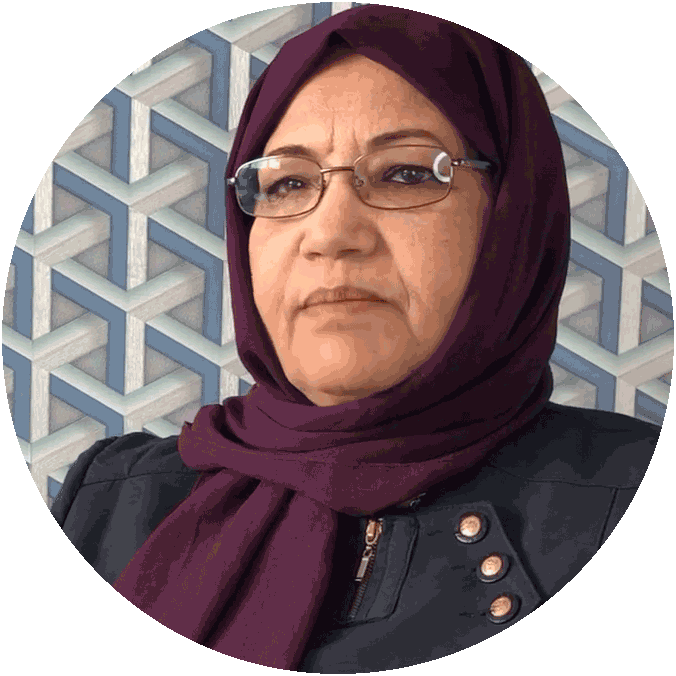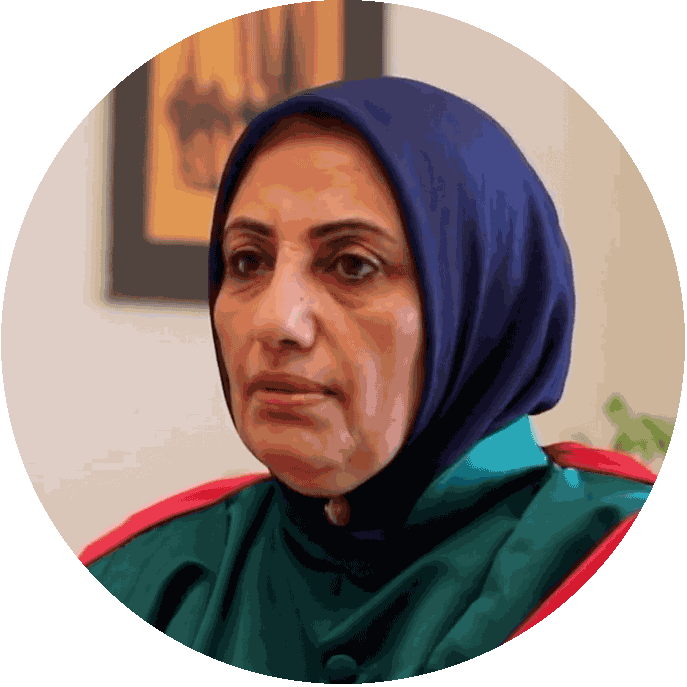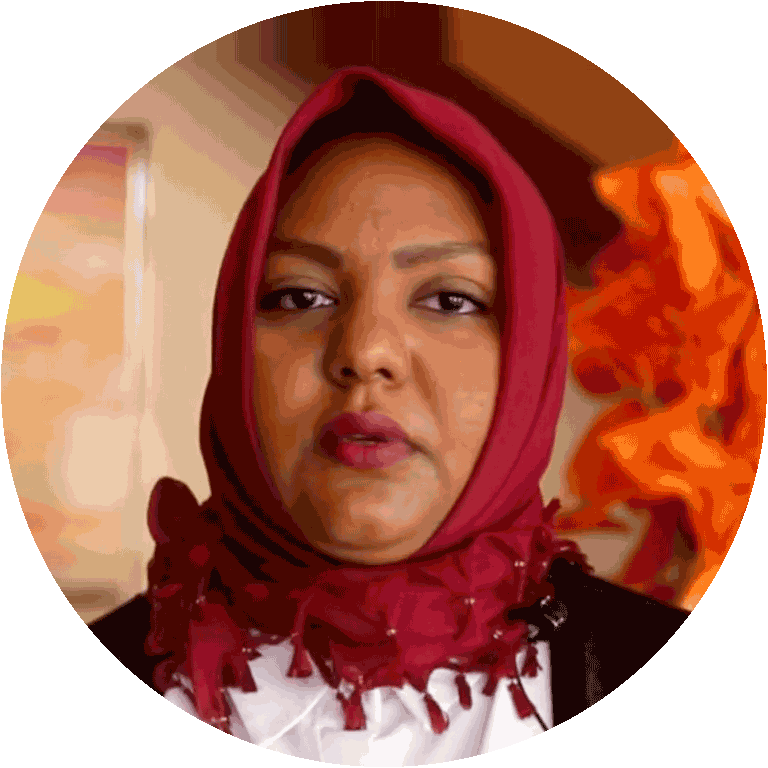International Women's Day 2020
IWPR works to champion issues of women’s rights around the globe while supporting female reporters in sometimes challenging environments. Our journalists, editors and partners not only highlight inequalities and abuses but also celebrate the achievements of women driving change in their own societies.
Each for Equal
Supporting collective individualism can drive real change.
Anthony Borden
IWPR Founder & Executive Director
It takes serious bravery to drive meaningful change, especially for women. The struggle is both political and personal, and – in many countries – means combatting not only laws and practice but deeply held social, cultural and religious mores.
“I don’t worry about going to jail,” an Egyptian woman activist explained to me. We were at an out-of-country training, and I had asked her about security and safety protocols in the IWPR project in which she is participating. “I know I will be arrested, it’s only a question of when. They know what I am up do, so I just get with it, and we’ll see.”
The campaign theme for this year’s International Women's Day is #EachforEqual – building a gender equal world in the fields of politics, education, the media and the economy. It is inspired by the idea of “collective individualism” – how our personal actions, conversations and behaviours can have a positive impact on the wider society.
The idea perfectly illustrates IWPR’s work with media and civic activists around the world – strengthening local voices to empower them and help them drive change. But it’s a serious business, bringing substantial risk that women (and men) fighting for equal rights must often endure. And in extreme cases, it takes the steely courage of our Egyptian colleague.
Yet the approach works. In Libya, IWPR’s ground-breaking You Are a Pioneer programme, with funding from the British government, shows how powerful individual stories can be in inspiring change and counteracting negative gender stereotypes.
Evidence shows that role models are an incredibly effective way to encourage and inspire young women and girls to pursue their ambitions.
So, despite the on-going conflict dividing the country, IWPR is bringing together civil society organisations from across the country in a national advocacy campaign to highlight examples of female success and agency.
For instance, a video series showcases pioneering women from diverse communities, while a colourful children’s booklet in various languages illustrates success stories in the fields of media, business, police, politics – even space travel.
Collective individualism is proving a powerful tool for social change in Iraq, too, where 30-year-old activist and video blogger Rana Abdulrazaq is using her personal experience to campaign for social change.
A divorcee with a 13-year-old daughter, Rana refuses to be defined by conservative social prejudice in her Kirkuk community, and uses Facebook to tell compelling stories about other Iraqi women working to change their world.
Now a university student studying English and an aspiring novelist, she says, “I want young people in Kirkuk to be open to new ideas and opinions; they have imprisoned themselves in so many old traditions, customs and beliefs.”
Reactions to such stories have been overwhelmingly positive – because from Iraq to Ukraine, Libya to the Balkans, gender equality is not just a women’s issue, but one that is vital for society as a whole.
For more than a quarter of a century, IWPR has worked in some of the world’s most difficult environments to helping empower local voices driving positive change. And we celebrate International Women’s Day, we invite everyone to support the inspiring collective individualism of these forthright and courageous voices around the world.
"Evidence shows that role models are an incredibly effective way to encourage and inspire young women and girls to pursue their ambitions."
The Hero of The Cave
Defying bombs and prejudice alike to run a hospital.
IWPR’s Liberated T is an advocacy campaign that aims to challenge negative gender stereotypes by focusing on the stories, battles, and experiences Syrian women encounter in their everyday lives.
In 2017, the series featured paediatrician Amani Ballour, who went on to be featured in the Oscar nominated documentary The Cave.
Ballour began volunteering in a hospital in Eastern Ghouta shortly after she graduated from medical school in 2012. The clinics were soon moved into the foundations of the building to avoid the relentless bombing, and the hospital became known as The Cave.
In 2016 Ballour became its manager, the only women in such a position in rebel-held Syria. The following year, IWPR interviewed her and her colleagues about the daily challenges she faced in her work.
Telling the Stories of Syrian Women
From stay-at-home mother to fearless reporter.
A single mother of seven, Rana Melhem was finally able to achieve her childhood dream of becoming a journalist after attending an IWPR media training.
Once a stay-at-home mother, at the beginning of the revolution she left her husband and began to volunteer as a nurse.
Displaced with her children to a camp in Idlib, she now produces written and video pieces for a range of outlets, with a focus on the human stories of refugees.
IWPR’s Liberated T spoke to her about the obstacles she faced in the course of pursing her career.
 Aisha Alasphar earned her private pilot’s license in the mid-1970s and went on to become a TV and radio presenter, an activist and an author.
Aisha Alasphar earned her private pilot’s license in the mid-1970s and went on to become a TV and radio presenter, an activist and an author.
“Women should push to guarantee their rights in the constitution, and this can be achieved by seeking the support and expertise of legal female advisors and lawyers in Libya.”

Rafiaa Al Abidi was the first female judge in Benghazi. In 2003, she became a judicial counsellor at the Court of Appeal and in 2010 was appointed to the Libyan Supreme Court.
“I believe, as do many other Libyan activists, that Libyan women are equal to men.”

Fadia Hamad is the first and only female deminer in Libya, working on demining in Sabha.
“I encourage women to follow their dreams and not listen to negative words. Many people look at demining as dangerous and risky... but for me it is humanitarian work.”
Sisters Doing it For Themselves
Numbers of female entrepreneurs are growing, despite still facing challenges.
Bringing Women into Politics
New law aims to increase female participation in municipal affairs.
Online Misogyny on the Rise
Study shows that sexist comments appear regularly across a range of digital media.
"IWPR Helped Me Overcome my Fear"
One blogger’s mission to convince Iraqi women to follow their dreams.
Ukraine: Unbroken
Women tell their stories of captivity in Eastern Ukraine.
This documentary trilogy tells the story of three female Ukrainian former prisoners-of-war who were held captive in the country’s east by paramilitary groups.




